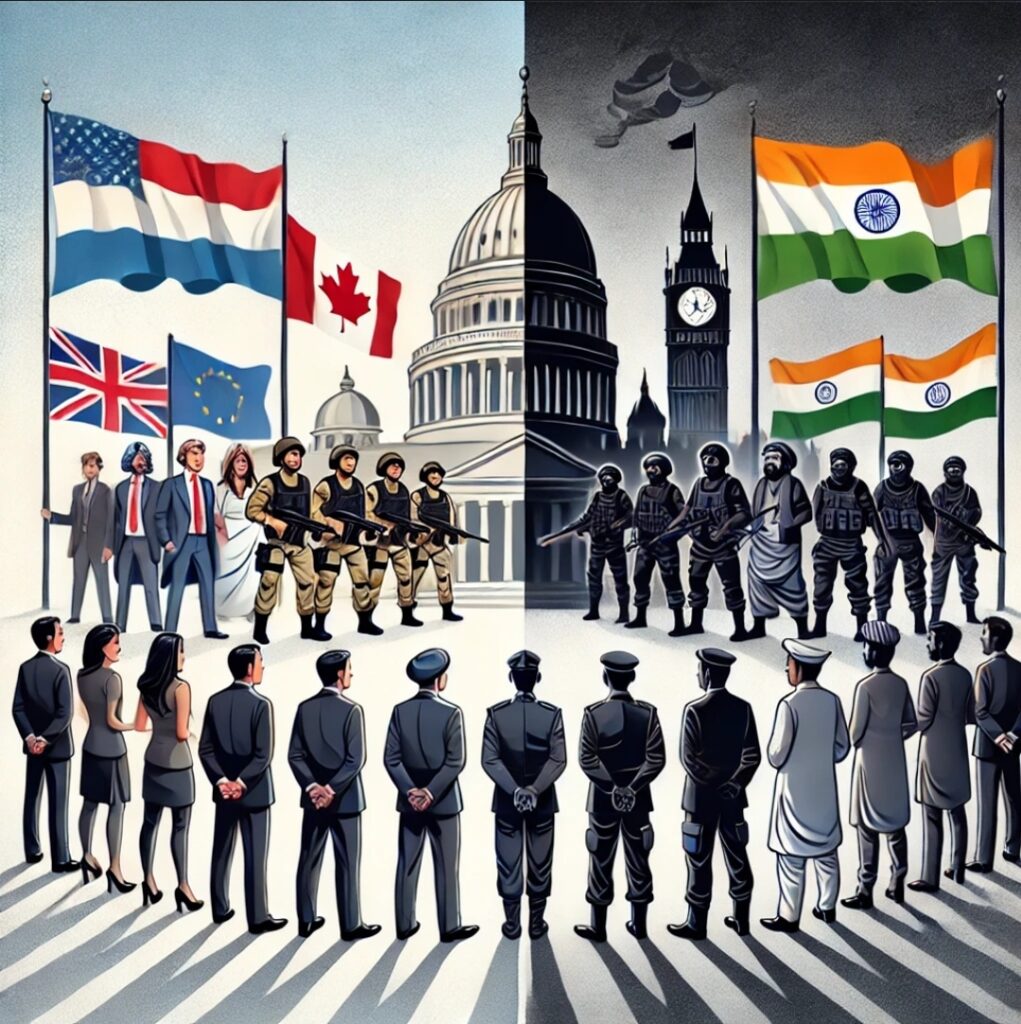
Recent actions by countries like the U.S. and Canada, along with some other Western nations, raise concerns over their stance on terrorism. In many cases, these countries have allowed disrespect towards the Indian flag, desecration of Hindu temples, and attacks on Indian communities without consequence. Shockingly, they often portray the perpetrators as innocent civilians, defending them rather than addressing the crimes committed.
The West’s handling of these issues suggests an openly antagonistic stance toward India, with some seemingly intent on causing division and discord. This behavior challenges any notion of friendship and instead marks these nations as opponents of India’s interests.
While Western countries often portray themselves as champions of justice, they do not hesitate to eliminate perceived threats abroad when it suits their agendas. Yet, they strongly object when others act against terrorists within their own borders. Figures like Nijjar and Pannu, labeled as terrorists in India, continue to find refuge under Western citizenship, which is wrongly used to imply innocence.
This approach questions the ethical foundation of Western policies. Much of their historical wealth has roots in colonization, conflict, and exploitation, and their current willingness to shelter foreign terrorists shows a troubling disregard for global security.
For genuine peace, the international community must stand united. Nations need to signal a firm stance that when terrorists face consequences for their actions, protection under foreign citizenship will not shield them.